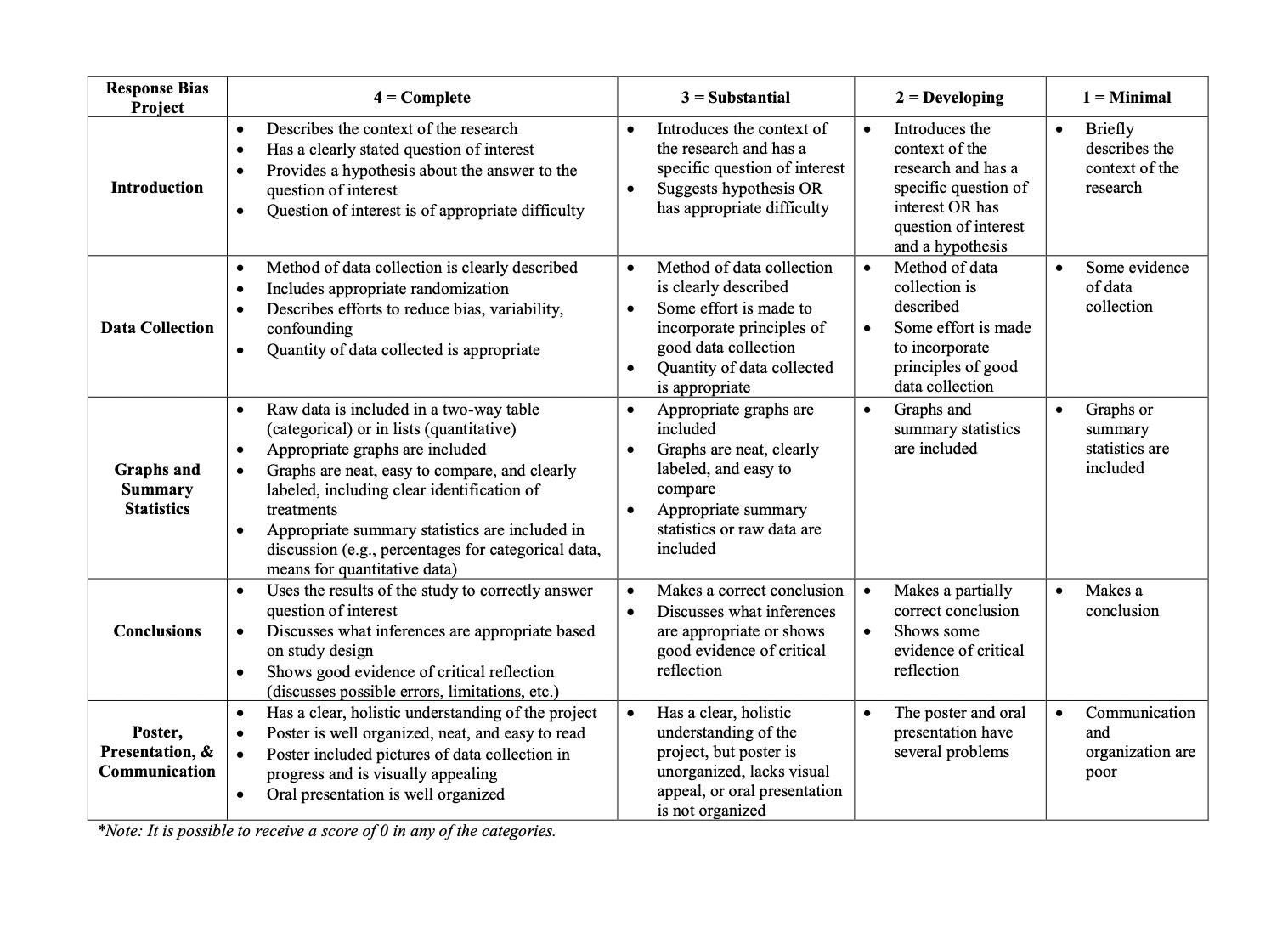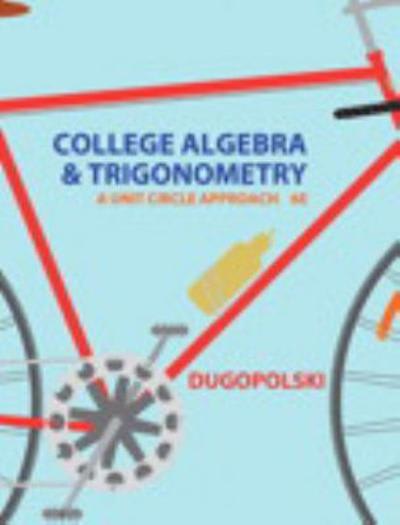Question
ACTIVITY: Response bias In this activity, your team will design and conduct an experiment to investigate the effects of response bias in surveys. You may
ACTIVITY: Response bias
In this activity, your team will design and conduct an experiment to investigate the effects of response bias in surveys. You may choose the topic for your surveys, but you must design your experiment so that it can answer at least one of the following questions:
Can the wording of a question create response bias?
Do the characteristics of the interviewer create response bias?
Does anonymity change the responses to sensitive questions?
Does manipulating the answer choices change the response?
Make up data is acceptable, as long as they are reasonable.
1.Writ e a proposal describing the design of your experiment.Be sure to include
(a) your chosen topic and which of the above questions you'll try to answer.
(b) a detailed description of how you will obtain your subjects (minimum of 50). Your plan must be practical!
(c) what your questions will be and how they will be asked.
(d) a clear explanation of how you will implement your design.
(e) precautions you will take to collect data ethically.
"Do you find females who wear makeup attractive?" (questioner wearing makeup: 75% answered yes)
"Do you find females who wear makeup attractive?" (questioner not wearing makeup: 30% answered yes)
"Do you watch cartoons?" (90% answered yes)
"Do youstillwatch cartoons?" (60% answered yes)
2.Record your data in a table.
3.Analyz e your data. What conclusion do you draw? Provide appropriate graphical and numerical evidence to support your answer.
4.Prepar e a report that includes the data you collected, your analysis from Step 3, and a discussion of any problems you encountered and how you dealt with them.

Step by Step Solution
There are 3 Steps involved in it
Step: 1

Get Instant Access to Expert-Tailored Solutions
See step-by-step solutions with expert insights and AI powered tools for academic success
Step: 2

Step: 3

Ace Your Homework with AI
Get the answers you need in no time with our AI-driven, step-by-step assistance
Get Started


